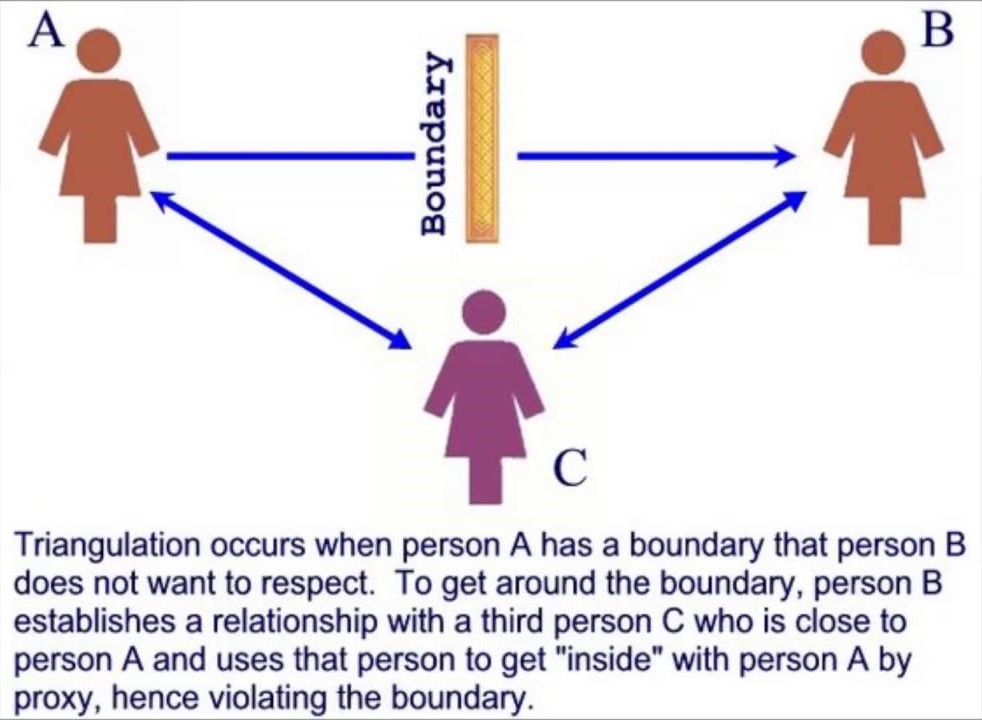July 2024

“Nobody is forcing you!” The battle cry of the toxic user. They proclaim it to absolve themselves of any accountability either after their manipulation attempts fail, or to try to seal the attempt’s success. The fact is, they were trying to force you through their manipulation attempts. It just didn’t work. It was psychological, rather than physical force. Now they must deflect away their bad behavior and paint you to be the “crazy” one who is imagining things. This is gaslighting. They use a variety of manipulation tactics to try to extract what they want from you. Below are several real-life scenarios illustrating these tactics.
The False Friend
A woman from my wife’s past recently contacted her online, pretending to be a long-lost friend, and asking for money for her sick child. My wife barely knew this person in school many years ago. They were not even acquaintances back then, much less friends. However, this was not even a small speed bump in this person’s moral values. That was her first tactic, too close, too fast. When my wife told her that she didn’t remember her from the past, she responded that my wife was mistaken and that they had been very close friends. That tactic is called gaslighting.
Next, she told my wife a very sad story about how sick her little boy was and that she needed 20,000 pesos to pay for his medical bills. (Scammer tip: Hospital bills and many other expenses are almost NEVER round numbers. A round number means a high likelihood of a scam.) This tactic is called the pity play. It tries to pluck your heart strings to empathize and then fork over money. My wife asked her why she didn’t set up a social media page or Facebook post asking for donations. Which led to the next manipulation attempt.
The woman told my wife, “You are so lucky that you hit the jackpot marrying a foreigner. You have a lot of money now while we are all poor.” This tactic involves both guilting and shaming. In conjunction with this, she contacted my wife’s friends on social media to try to convince them to try influencing my wife to pay money. This tactic is known as triangulation. When my wife wouldn’t produce the desired funds, the woman messaged her, “Nobody is forcing you to do anything,” and then blocked her on social media, which was actually a plus.
A Sunday School Situation
A former in-law had visions of becoming a religious leader and tried to become a Bible teacher to get his foot in the door. He tried to leverage me as a tool to help make this happen for him, even though I had no interest in joining his group. He started by telling me he valued my input and depended on me to be in the group. That was both moving too close, too fast and love bombing.
He told me that, since my house was centrally located to all the group members, it just made sense for the teachings to be held there. Never mind that I was a single father with sole custody of my child and working a full-time job, while he was retired and had a wife to help him. I told him we could have the first few meetings at my place, but then someone else would have to take over. When he made no effort to move the teachings elsewhere, I told him outright we couldn’t do it at my place anymore He once again told me he was depending on me and not to let him down. The love bombing had now crossed over into guilting.
He also asked me to help him create teaching videos and a website on which to showcase them. I provided him with links to free tutorials and recommended some easy tools and platforms. His response was, “That kind of learning doesn’t work for me. I need it to be hands-on. Can I stop by and you can show me how?” I told him that I had no expertise making videos. I was a software developer. He kept pushing though. Whenever I did show him something, he also stated that “That doesn’t work for me either. Can you just do it for me?” I did not agree to this, which appeared to make him angry.
This is when he began triangulating, contacting my friends and acquaintances, telling them he was worried about me “turning away from God” and not loving others. Some people joined him slandering me behind my back, others distanced themselves from me and one good friend told me what he was doing. I did not need any more signs. The next time he called me, I told him I was not up for a conversation. This set him off and he sent me a very nasty text, which included these words among others.
“I stopped telling you my opinion on what you should do with your spiritual life long ago. You pretty much told me you didn’t want to hear it and you were not going to do what I suggested anyway.”
This is both deflection and gaslighting. He had been telling me how to live my life for years, but now falsely claimed that he had stopped long ago. Furthermore, I never told him that I didn’t want to hear it. I just didn’t do everything he suggested. Deciding what works for you is normal and healthy.
“Why did I do those things and many more things to help you? I told you long ago that I loved you like a son I didn’t ever have.”
“Is that how you show love and appreciation for someone who loved you when NO ONE else did? No one!”
These were guilting and shaming manipulation attempts to try to force me to obey him. He tried to make me believe that I owed him for things he had not even done for me.
“I’ve always told you the truth but you haven’t been truthful with me. I’ve never tried to change you! I’ve given you truth and it’s up to you to do the changing.”
The next tactics are projection and gaslighting. He accused me of doing what he did, being untruthful. He then tried to gaslight me into believing that his attempts to change me (i.e. doing something I did not want to do) never happened. Next came a threat, using God as the proxy.
“Rebel against God all you want, there are plenty of examples in the Bible of people who chose your direction and your attitude. You stay on this self-pity victim mentality and you will see how that works out.”
Then came the predictable “nobody is forcing you” gaslighting statement.
“No one has held a gun to your head and made you do anything!“
Psychopathic Spouse
I was married to a woman later diagnosed as a psychopath. She took these manipulative tactics to an entirely new level. Her level of sophistication left the common manipulation tactics of others in the dust. All of her tactics were geared towards one thing. Mind control. She was not satisfied with one instance of extracting work or resources from people. Her goal was to turn them in to obedient puppets who, thinking they were acting independently, were simply following every order implanted into their heads by her.
One of her favorite advanced tactics was the double bind. She would present two options for me, both of which she could somehow spin to her advantage and my detriment. This tactic is a twisted extension of the parenting tool of presenting your child with a good option (do your homework) and a bad option (or lose your phone). My ex took this farther by presenting two options that had no chance of succeeding. She would wrap them in noble-sounding words that preyed on my male nature of chivalry and protection. Here is one example.
She had four children from a previous marriage. I became their stepfather. That was a painful, negative lesson for a future article. She excelled at inciting her children to create chaos to both further her manipulative aims and provide a smoke screen for her many nefarious activities. When I tried to call her on their behavior, her response was the double bind of two choices that had very high chances of failure.
“Well, then step up and be their father. They have to obey you. If you are not capable of doing that, then I have no choice but to try to run things.”
I did not want to be a failure as a man, so I stepped up. Of course, she provided zero support whenever I tried to step up. In fact, I later discovered that she covertly sabotaged my attempts behind the scenes. She would then vilify me as a failure, calling me a weak man and lamenting that their biological father (from whom she withheld the children) was much better suited to be a father. Then she capped it with, “Nobody forced you to do this.”
Is that true? Nobody forced me? Well, like the in-law in the previous scenario so dramatically stated, nobody held a gun to my head. However, she aggressively pursued me and portrayed herself to be a woman completely different from who she really was. This would clearly constitute fraud in the commercial world, but is widely accepted in relationships. I psychologist friend once asked me, “Would you have still married her if you knew who and what she truly is?” I emphatically replied, “No!”
With respect to raising the step-children, was any of that forced upon me? The initial decision was not, although she did paint things in such a flattering light that it was a very misinformed decision. The implementation of a double bind, along with all the shaming and guilting was serious manipulative force. Yes, I could physically walk away at any time, but at what cost. Losing everything in a divorce? Losing a woman and children in whom I had emotionally and financially invested? Using this as manipulative leverage is beyond cruel, yet people do it all the time.
The “nobody forced you” argument in response to manipulation is like the scene from X-Men: First Class where Sebastian Shaw tells young Erik Lehnsherr, “Move the coin or I kill your mother.” Nobody held a gun to Lehnsherr’s head or physically forced him to do anything. However it was a very cruel form of psychological force.
Closing Thoughts
Consider what I have described to you above. It is force. It is toxic, perhaps even evil. Learn how to detect it and detect it early. Cut off people who use the “nobody forced you” ploy and never let them back into your life. Almost all of them also display other manipulative traits. They do not have empathy for you nor care about your best interests. It is all about them. You will never be more than a tool to them, so don’t let them pick you up and use you.

















